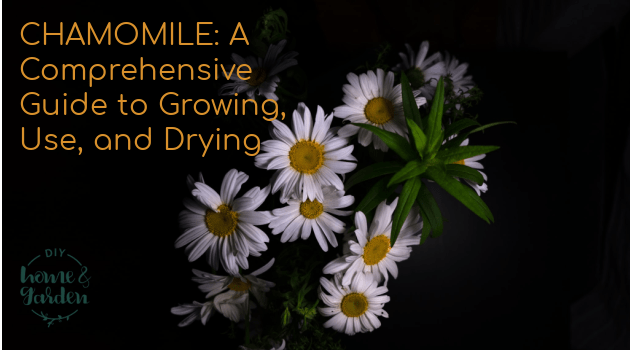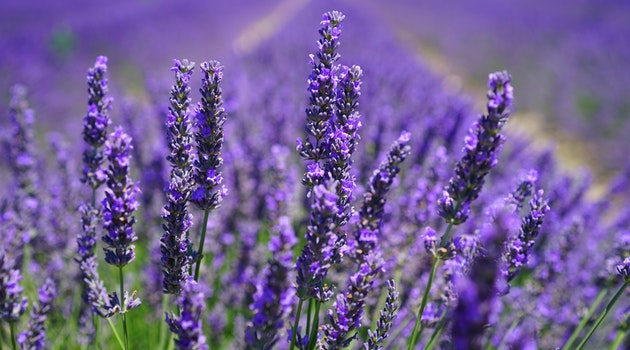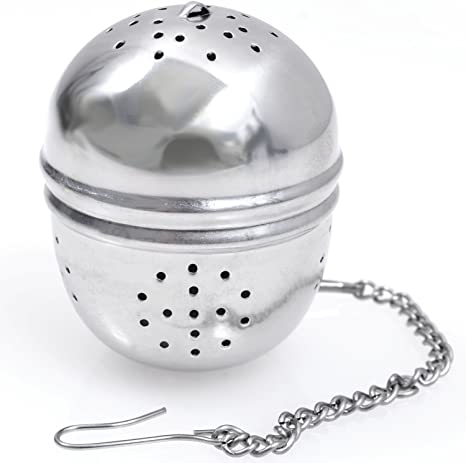If you toss and turn, struggling to get a complete night’s sleep, it might be time to explore bedtime teas. Technically, bedtime teas contain no tea leaves; instead, they use herbs. Thus, the more accurate name is herbal tisane. Let’s continue using “tea” throughout this article to keep things easy. However, the difference seemed worth a mention.
So what bedtime teas help you sleep? Here is a list of five science-backed tisanes to try. Additionally, you can find the seldom occurring but possible side effects and risks associated with each of the bedtime teas.
DISCLAIMER: I am not a doctor, I’m a blogger. Before you start any herbal remedies, please have a discussion about your concern with a physician. Herbs can interact with other medications or cause specific side effects. This article is not medical advice. Instead, it gives you some talking points to discuss with a qualified physician.
5 Bedtime Teas to Help You Fall Asleep
If you are looking for a fragrant, sweeter tea to help you sleep, you may want to try chamomile or lavender from our list of bedtime teas. Both have relaxing properties that will help you fall asleep. If you prefer to drink tea that is not overly sweet, you can try nalerian root. It is said to help you sleep well by increasing the level of serotonin in the blood. Regardless of taste preferences, tisanes can help you relax and get some shut-eye.
1 – Lemon balm bedtime tea
Lemon balm has been used for centuries as a natural sleep aid. It can help with insomnia, night terrors, and anxiety. According to the National Institutes of Health, adults should get at least seven to eight hours of sleep every night. Unfortunately, not all adults get that much sleep, and 50 to 70 million adults suffer from a sleep disorder. These disorders can be caused by physiological or environmental factors, and they can cause problems with the brain and mental health.
Lemon balm tea is a natural sleep aid that helps improve cognitive functions, promoting more restful sleep. It may help to improve memory, concentration, and reasoning, according to a study from 2014. Lemon balm is also a natural sleep aid that may benefit people suffering from anxiety.
One publication notes how lemon balm can help ease anxiety. So if your sleep loss stems from a racing mind and anxious thoughts, this might be one of the better bedtime teas to try.
Some possible side effects of lemon balm:
- Stomachache
- Nausea
- Rashes
- Dizziness
- Headache
- Allergic reaction
How to make lemon balm tea:
- Put one generous tablespoon of dried lemon balm into a tea ball.
- Immerse the tea ball into a mug filled with about ten ounces of boiling water.
- Steep the tea for about five to six minutes, depending on your preferred strength.
2 – Chamomile tea
Drinking chamomile tea before bed can help you get a good night’s sleep. It contains relaxing compounds that can reduce anxiety and help you fall asleep. It may even help people with sleep disorders such as insomnia.
Chamomile has been used as a sedative for centuries. However, researchers have only conducted a few studies on how it might help promote sleep. Thus, most evidence is anecdotal in nature and drinking chamomile tea is worth a try.
One promising note. Chamomile contains an active compound called apigenin, which has been shown to have a calming effect. This substance binds to benzodiazepine receptors in the brain, which help induce sleep. That could be why those ancient healers promoted its use for sleeplessness.

Some possible risks of chamomile:
- Allergies (don’t take if you are allergic to ragweed, mums, calendula (marigold)
- Dermatitis
- Could interfere with birth control pills
How to make chamomile tea:
- Fill a tea ball with three tablespoons of dried chamomile
- Immerse the tea ball into 12 ounces of boiled water
- Steep for six minutes and enjoy.
3 – Lavender tea
Having a cup of lavender tea at bedtime can help you get a good night’s sleep. It has a calming effect and is known to relieve anxiety, according to a 2020 study. It has also been shown to reduce inflammation, making you more comfortable while sleeping. However, getting better-quality lavender tea is crucial to get the most relaxing effects.
Some possible side effects of lavender tea
- Check with your physician first if you are pregnant
- Allergic reaction to the pollen
How to Make Lavender Tea:
- Put two teaspoons of dried lavender leaves and stems in your tea ball
- Place the tea ball into ten ounces of boiled water.
- Steep for seven to ten minutes (the longer, the more flavorful)
Another great way to make lavender tea for bedtime is to steep a cup in a French press. This way, the flavor of the tea will be released, and the tea will have a delicious aroma. You can also add honey for an even sweeter drink. Lavender tea is also rich in calcium and magnesium and has numerous health benefits. It can boost the immune system and support digestion.

4 – Valerian root tea
Valerian root has various benefits for people suffering from sleep disorders but has some side effects. For example, it may increase the effect of a sedative. Because of this, people on a sedative should avoid taking this herb for sleep as it may create an adverse interaction. However, this herb is not habit-forming, so the risk of addiction is low.
Valerian root may help people deal with insomnia. It can also reduce the amount of time it takes to fall asleep.
Possible side effects of valerian root tea:
- Irregular heartbeat
- Drowsiness
- Headache
- Stomachache
- Brain fog
- Insomnia (interesting that health experts note both insomnia and drowsiness).
Warning: Do not use Valerian root tea if pregnant, nursing, or trying to get pregnant. As I researched the information for this article, this warning popped up on every site I visited.
How to make valerian root tea:
- Add two to three teaspoons of dried valerian root to your tea ball
- Immerse it in ten ounces of simmered water–not boiling water. You must not boil valerian root.
- Steep the herb for five minutes and sip it.
5 – Passionflower tea
A cup of passionflower tea can help you relax and fall asleep, but be careful. The herbal plant’s sedative properties can interact negatively with certain medications. You should check with your doctor before adding passionflower tea to your regimen. Also, it can cause cognitive or physical confusion, so drink it before driving or doing anything else that requires alertness. Additionally, some of its active ingredients can cause fainting and muscle weakness.
The National Center for Complementary and Integrative Medicine notes that some dentists use passionflower tea in patients with dental anxiety. They also noted its usefulness in treating anxiety.
Possible side effects of passionflower tea:
- Dizziness
- Drowsiness
- Lack of coordination
- Irregular heartbeat
- Mild confusion
How to make passionflower tea:
- Put one tablespoon of passionflower leaves in the tea ball.
- Add it to ten to twelve ounces of boiling water.
- Steep for six to eight minutes.

The Takeaway: Bedtime Teas Are Worth a Try If You Don’t Sleep Well (With Your Doctor’s Consultation)
If you find it difficult to fall asleep or wake up easily at night, bedtime teas are worth a try. They could be the natural alternative to the pharmaceuticals that you might otherwise need. Bedtime teas are an herbal product–but that does not make them safe for everyone.
They can cause interactions with some medications. Additionally, a small number of people might be allergic to some of the herbs.
So before you start experimenting with bedtime teas, discuss them with your family doctor.

